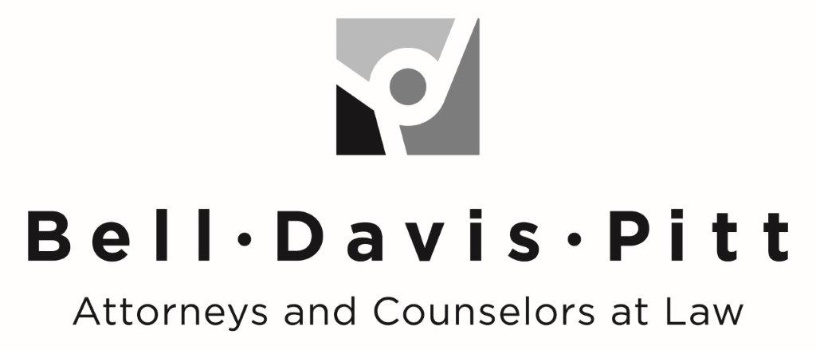
Representative Cases
- R. J. Reynolds Tobacco Company v. Durham County, et al., 107 S. Ct. 499 (1986)
- In re Winston-Salem Joint Venture, 144 N.C.App. 706 (2001)
- In re Lane Company-Hickory Chair Div., 153 N.C.App 119 (2002)
- In re Eagle's Nest Foundation, 194 N.C.App. 770 (2009)
- In re Louisiana-Pacific Corporation, 208 N.C.App, 457 (2010)
- In re Blue Ridge Mall LLC, 214 N.C.App. 263 (2011)
- In re Parkdale America, 212 N.C.App. 192 (2011) ("Parkdale I")
- In re Parkdale Mills, 225 N.C.App. 713 (2013) ("Parkdale II")
- In re Hull Story Retail Group, 231 N.C.App. 514 (2013)
- In re Kimberly Park II, LLC, et al., 18 PTC 0029 (2019)
- In re Parkdale Mills, 240 N.C.App. 130 (2015) ("Parkdale III")
- In re U.S. Food, Inc., 18 PTC 0398 (2020)
- Matter of Lowe's Home Center, LLC, 269 N.C.App. 221 (2020)
- Matter of Harris Teeter, LLC, 2021-NCSC-80 (2021)
- In re CW12 Charlotte Hotel LP, 20 PTC 0161 (2023)
NORTH CAROLINA PROPERTY TAX REVALUATION
- WHAT DOES PROPERTY TAX REVALUATION IN NORTH CAROLINA MEAN?
-
Revaluation is when a North Carolina county determines the fair market value, as of January 1st, of all taxable properties in the county. This value is then taxed for property tax purposes. The tax rate applicable to the property is then set by the county and municipality by July 1st. There is no state property tax in the state of North Carolina.
- HOW DOES NORTH CAROLINA PROPERTY TAX REVALUATION WORK?
-
At least once every eight years, counties in North Carolina are required by law to revalue real property. Keeping this in mind, many counties decide to revalue on a more frequent basis. It is most common for counties in North Carolina to revalue property once every four years — when they do so, it is called a revaluation year. Between revaluation years, the tax value generally remains the same, absent physical changes in the property.
- WHAT ARE THE LOGISTICS OF NC PROPERTY TAXES & PAYMENTS?
-
Since there are 100 counties in North Carolina, all with different revaluation cycles, keeping track of property tax revaluations can be difficult, especially when you are in charge of managing multiple properties in different counties. But, it is essential that you stay on top of when your property will be revalued, given that the best time to maximize your savings is when you appeal during a revaluation year. Below is an overview of key timeframes for property taxes.
December – March:
Valuation notices sent out by counties in revaluation years
April – June:
Board of Equalization & Review meets; deadline for filing appeals
July - August:
Tax bills generally mailed
September 1st:
Property taxes due and payable
January 6th:
Date by which property taxes must be paid to avoid interest
- ASSESSING PROPERTY TAX IN NORTH CAROLINA
-
The concepts of “listing” and “appraisal” are both central to understanding the property tax system.
LISTING
Listing refers to the obligation property owners have to file a report showing as of January 1st that they are the designated property owner. For real property, a permanent listing system is maintained. This means that property owners are only required to list their property if ownership has been modified in the past year. And there are changes to the property, i.e., improvements.
APPRAISAL
After the property is listed, it is appraised (valued for property tax purposes). The standard for valuing property for tax purposes is “fair market value" — the value the property would sell for in an open market sale between a willing buyer and a willing seller. In general, most NC property should be taxed at 100% of its fair market value. However, it is common for commercial property to be erroneously assessed and taxed in excess of fair market value. If you disagree with your North Carolina property tax assessment, our attorneys can help you explore your options for pursuing an appeal.
- EXEMPTIONS & EXCLUSIONS WHEN ASSESSING PROPERTY TAX IN NORTH CAROLINA
-
While the majority of North Carolina property should be taxed at 100% of its fair market value, there are some exceptions to that rule.
According to the North Carolina Constitution, governmental and certain other properties can be exempt entirely from taxation. In addition, there are several statutes, enacted by the North Carolina General Assembly, giving special treatment to a variety of property types. Some examples of this include:
- Charity
- Religion
- Science
- Literary
- Healthcare
- HOW ARE NC BUSINESSES NOTIFIED OF THEIR PROPERTY TAX VALUE?
-
Notices in a Revaluation Year
Notices sent out in a revaluation year often indicate that taxpayers who do not agree with their assessments should file for an informal review rather than pursuing a case with the Board of Equalization and Review. Although the revaluation notice may seem to indicate that your only option is to file for an informal review, you can bypass the informal appeal and appeal to the local BER instead. That being said, we do recommend that you file for an informal review before following through with the formal appeals process.
Notices in Non-Revaluation Years
Time and time again, we see taxpayers miss their ability to appeal during a non-revaluation year. Why? Because tax assessors are not required to send out valuation notices during a non-revaluation year. As stated previously, the value set in the revaluation year simply carries forward to subsequent years until the next revaluation. Therefore, the first time a property owner thinks of an appeal is when he gets his bill, which is after the appeal deadline. Your safest bet is to appeal to the BER before April 1st.
- APPEALING WHEN IT'S NOT A REVALUATION YEAR
-
Filing an appeal on your North Carolina property is best done during the revaluation year. Reductions are not retroactive, therefore, a reduction that results from an appeal filed in the year after a revaluation year will have lost one or more years of tax savings. That being said, in some circumstances, it may be worth filing an appeal in a non-revaluation year because the remaining years still generate significant tax savings.
- HOW THE APPEALS PROCESS WORKS IN NORTH CAROLINA
-
The Board of Equalization and Review
The first step in an appeal is to appeal to the Board of Equalization and Review. The BER is a group of local individuals who have been appointed by the County Commissioners. The Board of Equalization and Review is required to hold its first meeting between the first Monday in April and the first Monday in May. The BER will set a deadline for filing appeals. Appeal deadlines vary from county to county, and from year to year in each county. We recommend that you file your appeal before the first Monday in April to ensure that you’re never late.
The North Carolina Property Tax Commission
After your Board of Equalization and Review hearing, you will receive a notice detailing their decision. If you do not agree with their decision, you have 30 days to file a Notice of Appeal and Application for Hearing to the North Carolina Property Tax Commission. The North Carolina Property Tax Commission hearing is a formal legal proceeding, and therefore, taxpayers are responsible for presenting evidence to demonstrate why they believe that their commercial property has been unfairly assessed. Once you have done so, your taxing jurisdiction will be given the opportunity to prove that their valuation equates to fair market value.
NC Court of Appeals and Supreme Court of NC
After the North Carolina Property Tax Commission reaches a decision, both the taxpayer and taxing jurisdictions have the right to appeal to the North Carolina Court of Appeals. The Court of Appeals may uphold the PTC decision, overrule the PTC decision or send the case back to the PTC for further action. Decisions made by the North Carolina Court of Appeals can be appealed to the Supreme Court of North Carolina under certain circumstances.
- REASONS TO CALL AN ATTORNEY WITH YOUR PROPERTY TAX APPEAL
-
As property tax attorneys, we believe that it is always best to call an attorney sooner rather than later with concerns about your property tax appeal. Although you will not always need the representation of an attorney, some good advice can never hurt. Here are a few areas where we have seen property owners making mistakes when not having legal representation:
- Missed Deadlines
- Not using the proper valuation date
- Not understanding the applicable burden of proof
- Not knowing what evidence could be relevant, and what is not
Persons and companies frequently represent themselves at local BER appeals. Since the appeal is informal at this level, there is rarely any damage to not having the assistance of a lawyer. While it is possible for persons and companies to handle an appeal to the PTC without the assistance of a lawyer, we do not advise it. The hearing before the PTC is similar to a court proceeding and assistance of counsel is necessary to ensure the best chance of success.
- HANDLING A WIDE RANGE OF PROPERTY TAX MATTERS
-
Our team handles property tax matters on a statewide basis. The North Carolina property tax legal services we provide include:
- Evaluation of the assessed value of your commercial property
- Estimating potential property tax savings from and costs to achieve an assessed value reduction
- Business personal property tax appeals
- Exemptions, exclusions and use value
- Property tax appeals to Boards of Equalization and Review (BER)
- Property tax appeals to the Property Tax Commission (PTC)
- Property tax appeals to the North Carolina Court of Appeals
- Property tax appeals to the Supreme Court of North Carolina




